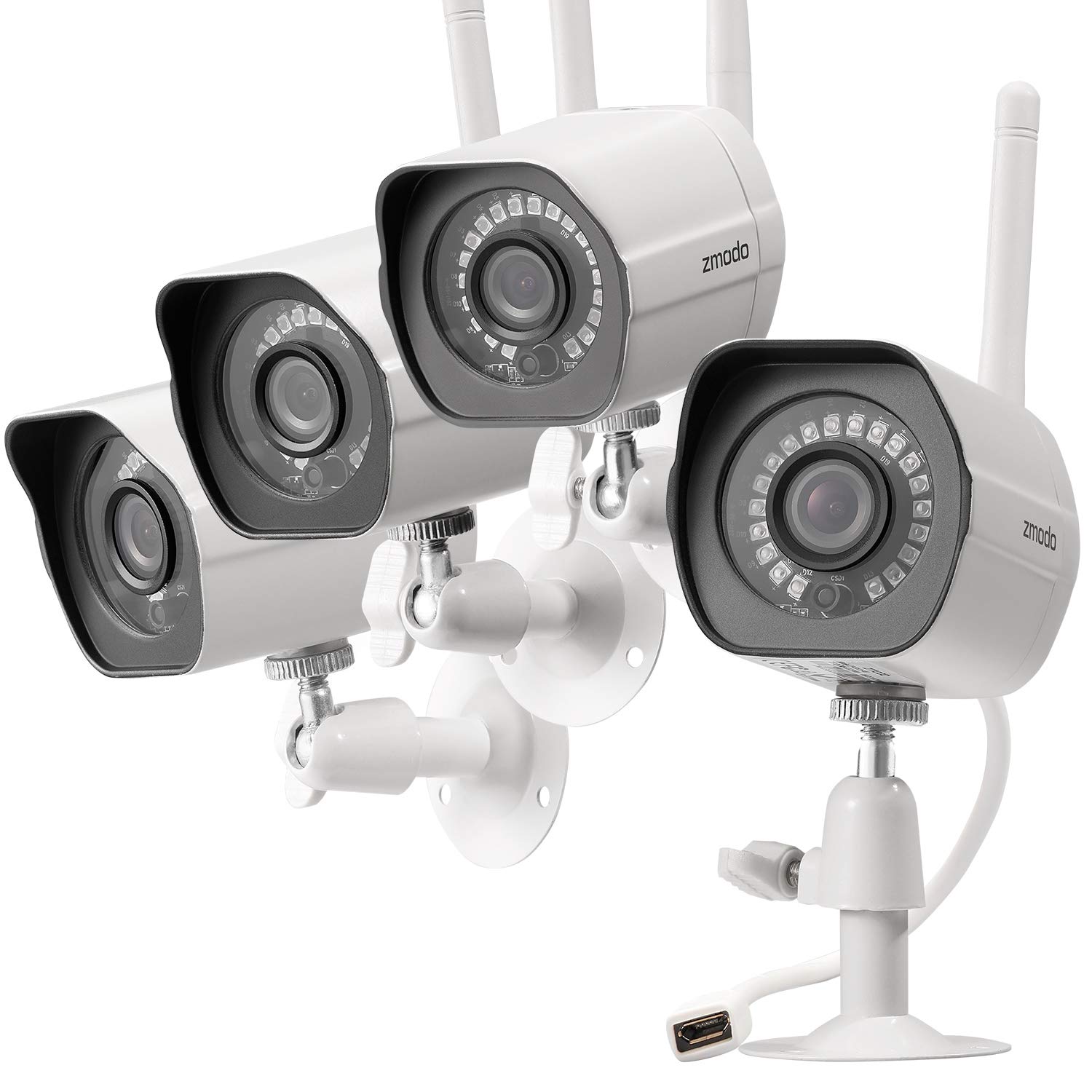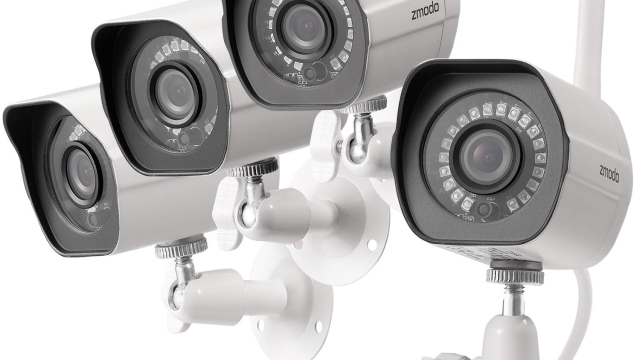
In a world where safety and security are of utmost importance, it is no wonder that the utilization of security cameras has become increasingly prevalent. These electronic watchdogs play a critical role in safeguarding our homes, businesses, and public spaces, providing a watchful eye that never tires. With their ability to deter potential threats, capture critical evidence, and offer a sense of peace of mind, security cameras have truly revolutionized the way we protect our loved ones and our belongings.
Gone are the days of relying solely on locks and alarms; security cameras have evolved to become a necessity in today’s modern world. Whether installed discreetly throughout our homes or towering over our city streets, these unblinking sentinels work tirelessly to provide round-the-clock surveillance. With advances in technology, security cameras now boast impressive features such as high-resolution imaging, wide-angle lenses, and even night vision capabilities, ensuring that every corner is under constant scrutiny. As we dive into the world of security cameras, let us explore their various types, their benefits, and the ethical considerations that come with their use.
Types of Security Cameras
There are several types of security cameras available on the market today, each with its own unique features and advantages. Understanding the different types can help you make an informed decision when choosing the right security camera system for your needs.
-
Dome Cameras:
Dome cameras, as the name suggests, are dome-shaped cameras that are commonly used in indoor surveillance. They offer a discreet and stylish design, making them less noticeable to potential intruders. Dome cameras are versatile and can be mounted on ceilings or walls, providing a wide field of view and capturing high-resolution footage. -
Bullet Cameras:
Bullet cameras are cylindrical in shape and are typically used for outdoor surveillance. They are designed to be weatherproof and can withstand harsh conditions such as heavy rain and extreme temperatures. Bullet cameras are often preferred for their long-distance range and ability to capture sharp and detailed images. They are commonly used in parking lots, yards, and other outdoor areas. -
PTZ Cameras:
PTZ (Pan-Tilt-Zoom) cameras are motorized cameras that can pan, tilt, and zoom to provide flexible surveillance coverage. These cameras can be remotely controlled, allowing you to adjust the direction and zoom level of the camera as needed. PTZ cameras are commonly used in large areas where monitoring a wide area is required, such as stadiums, airports, and shopping centers.
Understanding the different types of security cameras is essential in choosing the right system for your specific security needs. Whether you opt for dome cameras for discrete indoor surveillance, bullet cameras for outdoor monitoring, or PTZ cameras for flexible coverage, having a well-rounded security camera setup can greatly enhance the safety and security of your premises.
Benefits of Installing Security Cameras
Increased Safety and Deterrence: Security cameras serve as a powerful deterrent against crime. When potential criminals see cameras in place, they are more likely to think twice before targeting a property. The presence of security cameras can help create a sense of safety and discourage trespassing, theft, and vandalism.
24/7 Surveillance: Security cameras provide round-the-clock monitoring, ensuring that your property is under constant watch. This can be particularly useful for businesses and homeowners who want to keep a close eye on their premises even when they are away. This constant surveillance can help identify suspicious activities and prevent potential security threats.
Evidence Collection and Investigation: In the unfortunate event of a crime occurring on your property, security cameras can capture valuable evidence. The recorded footage can be reviewed and used by law enforcement to identify and apprehend the culprits. This can greatly aid investigations and potentially lead to the recovery of stolen property.
Peace of Mind: One of the major benefits of installing security cameras is the peace of mind they offer. Whether you are at work, on vacation, or simply sleeping at night, having security cameras in place can provide a sense of reassurance. Knowing that your property is being monitored can help alleviate worries about potential security breaches and provide a greater sense of overall safety.
Increased Property Value: Installing security cameras can also have a positive impact on the value of your property. Potential buyers or renters may consider properties equipped with security camera systems as more desirable due to the added security measures in place.
Improved Monitoring and Control: Security cameras allow you to remotely monitor your property from anywhere with an internet connection. With the help of mobile apps, you can access live video feeds or review recorded footage on your smartphone or computer. This gives you greater control over your property’s security, even when you are not physically present.
By installing security cameras, you can enjoy these benefits and enhance the safety and security of your property. It is important to choose the right type of cameras and strategic locations to maximize their effectiveness in keeping your home or business protected.
Factors to Consider Before Choosing a Security Camera
Before purchasing a security camera, it is crucial to consider a few key factors that will ensure optimal performance and meet your specific needs.
Firstly, determine the purpose of your security camera. Are you looking to monitor the inside or outside of your property? Do you need a camera with night vision capabilities? Understanding your requirements will help you select the right type of camera to fulfill your surveillance goals.
Next, consider the resolution and image quality of the camera. Higher resolution cameras will provide clearer and more detailed footage, allowing for easier identification of individuals or objects. Assess whether a standard resolution camera will suffice or if investing in a high-resolution camera is necessary for your security needs.
In addition, consider the camera’s field of view. The field of view refers to the area the camera can capture. If you want to monitor a wide area, such as a parking lot or a backyard, a camera with a wider field of view would be ideal. However, if you need to focus on specific points, such as entryways or specific rooms, a camera with a narrow field of view may be more suitable.
Remember to take into account these essential factors when choosing a security camera to ensure that it meets your requirements and provides the level of protection you desire.
